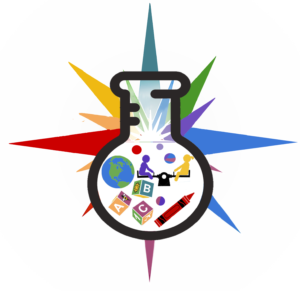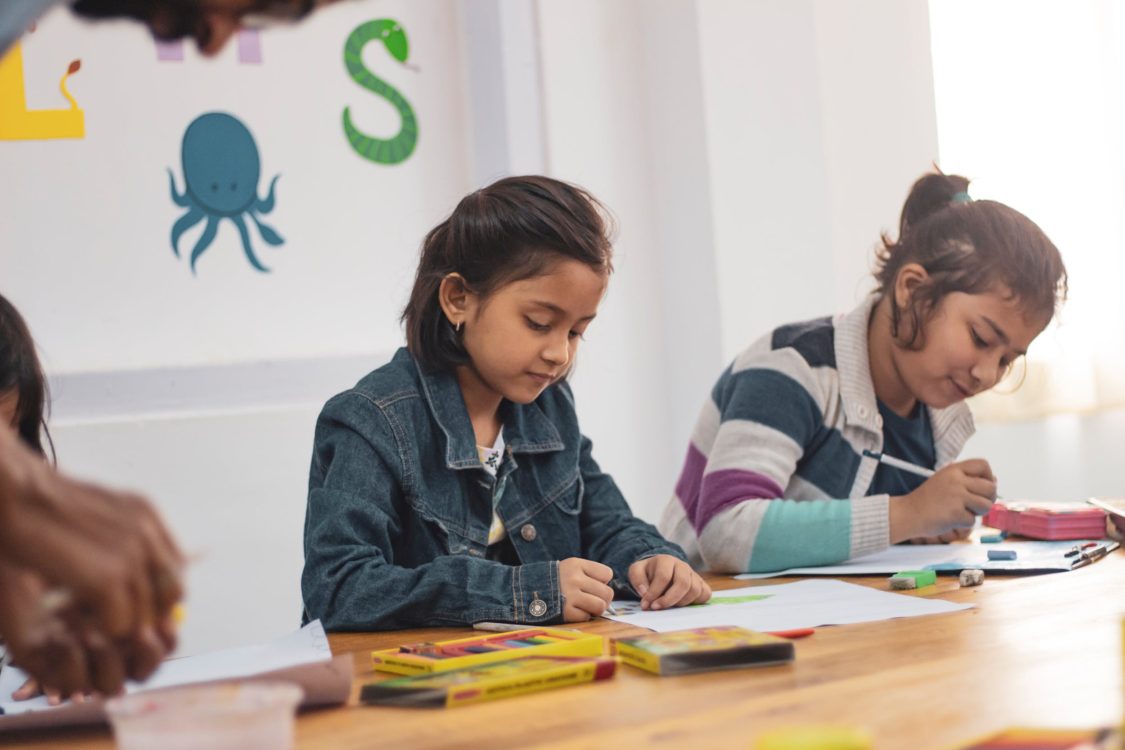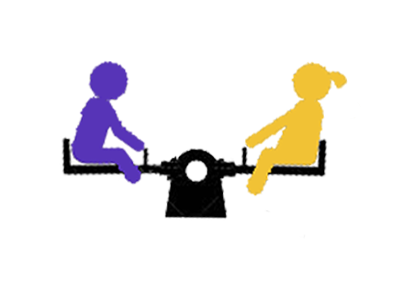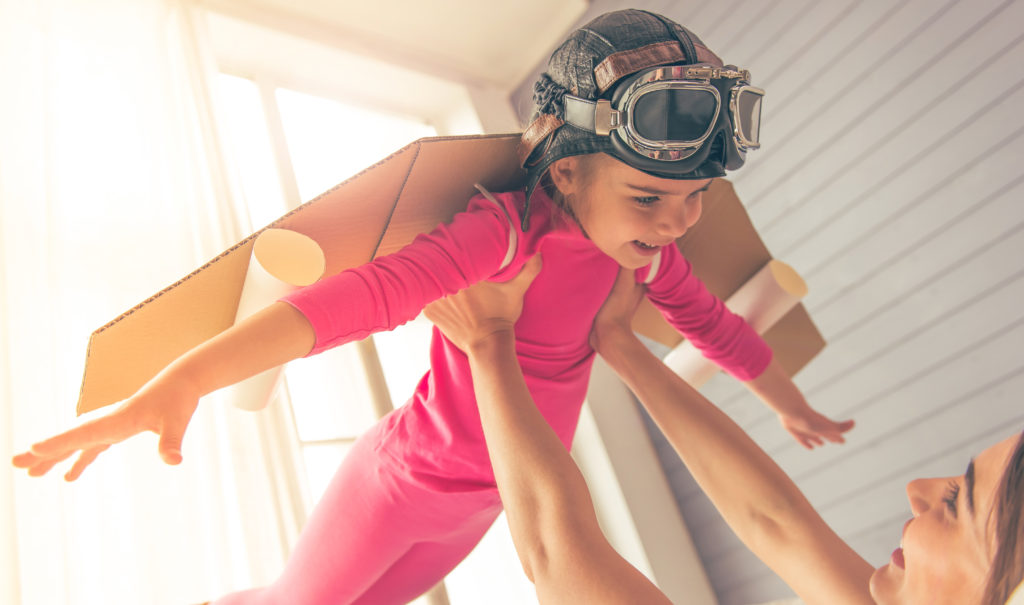Catalyst
Early Learning Lab
“As we observe children, we see the vitality of their spirit, the maximum effort put forth in all they do, the intuition, attention and focus they bring to all life’s events, and the sheer joy they experience in living..”-Maria Montessori


Our Mission
Removing barriers before they have been built
"Children arrive in the world ready to learn, but not all children arrive at school that way." Catalyst Early Learning Lab strives to provide a safe and nurturing environment for young learners to learn about their world and their capabilities.
General Program Information
A comfortable place to grow and learn of the adventures to come in our great global community
-Catalyst Early Learning Lab is staffed by teachers trained in developmentally appropriate learning while also interacting with Catalyst Pre-Professional Program apprentices interested in early childhood education.
-Classes have developmentally appropriate student to teacher ratios leading to first grade with a maximum student teacher ratio of seven to one.
-Catalyst Early Learning Lab is a language rich environment with daily literacy lessons for all students as well as immersive foreign language opportunities as part of our commitment to introducing our students to the world.
-Each level has a developmentally appropriate curriculum for literacy, numeracy, and socioemotional learning.
-Students feel safe as teachers respond to their differing communication styles and allow them the space to follow their own fascinations.
-Learners grow through play in nature and with developmentally appropriate toys.
Students Begin a Better World


Philosophy on Non-Gendered Education Early Education
The Global Early Adolescent Study found that around the world, including in our country, children believe gender stereotypes by the end of elementary school--including negative confines such as girls are weaker and boys have to tough; girls are overdramatic and gossipy while boys are prone to violence. But the building blocks of these stereotypes are seen by age two as children already describe girl and boy colors, activities, and toys. With these gendered boxes comes the dichotomy that while girls can aspire to climb higher, run faster, and beat the boys at their activities; boys should never try to dance more expressively, care more deeply, or enjoy anything deemed girly.
At Catalyst Early Learning Lab, we work to make all children focus on who they can be as extraordinary humans without gender expectations.
For example, flashcards teaching the word nurse show the accurate depiction of person in scrubs instead of a gendered and dated drawing of a woman in a white dress. Imagination scarves are encouraged to become superhero capes or the latest fall fashion for whomever wants to play with them. Learners are encouraged to find commonalities with book characters based on their personalities and not the book characters' gender.
Teaching Model-Our World, Our Opportunity
-0-2 years old: We learn about a new country every two weeks. We listen to their language and read stories from that country. We might watch a children's program from that country or listen to a song from that country. We focus on building good relationship skills and communication. Teachers know and use baby sign language. Our youngest learners participate in our composting efforts and our vegetable garden.
-Preschool: We join our younger friends in learning about a different country every two weeks but we follow a Montessori-based path that might have us learning a song or instrument from that country, trying to build a puppet like ones used in that country, or building one of their famous buildings from blocks based on our interests. We start with an early numeracy program until we are ready to join our older Early Elementary Crew for math lessons in numeric pattern recognition and number sense skills all with imaginative literacy stories for us to follow using Project M2 and Context for Learning Mathematics. We have practice daily in recognizing people's emotions and communicating our needs. We read daily and play in nature. We work to compost our trash into soil and grow food items in our garden as part of our science learning.
-Early Elementary: Our kindergarten and first grade programs use EL Education's Reading curriculum with lessons to improve how we learn from books, lessons to improve our reading foundations, and lessons to show our creativity with text. We learn math using Project M2 and Contexts for Learning Mathematics to improve our number sense and understand how we can use the math skills we are learning. We learn to make records of our observations in science and start to learn more about the United States.
Field Service Days
Catalyst Early Learning Lab believes in being a part of the greater community. We invite community experts to invigorate learning units. Students in Kindergarten and first grade even participate in planning a monthly Field Service Day to deepen our learning through observation and experience while giving back to our community. These are more than just field trips. They are inquiry-based field studies related to current material. Student field observations and reflections become part of classroom discourse.
Subject Focuses
Students learn about their world through interacting with it
Social Studies
Our young learners get a glimpse into the cultures of the world from day one having opportunities to hear different languages, enjoy foreign children’s entertainment, and learn about how activities like gardening can help their communities and are professions of adults in our community.
Our early elementary learners study holidays around the world and at home as well as studying how many of our American catalysts throughout history grew up in times different from us but also had many of the same trait we do. Then the students get to share their knowledge with the Studio students learning about the eras of these famous people.
Reading and Writing
Our Preschool and youngest learners experiment with drawing and communicating while gaining knowledge about our world through daily read-aloud time with books written about parts of the world and written in parts of the world. They experience and discuss new pieces of art and photography every day. Catalyst Early Learning Lab Early Elementary Learners utilize EL Education’s (formerly Expeditionary Learning) reading and writing units of study that apply globally relevant materials to teach reading skills. They participate in learning through reading lessons, reading foundation lessons, and interdisciplinary literacy labs.
Mathematics
Our program uses real life manipulatives to help young students learn to count and begin using operations, such as how many seeds we plant in our garden and how many sprout and then using math to find the difference between those two numbers. We look for patterns in our observations and create patterns.
When students are ready, they begin our RME (Realistic Math Education) program that uses Catherine Fosnot’s Contexts for Learning Mathematics program and Project M2. These curriculums utilize real world scenarios to teach mathematical skills.
This curriculum helps students develop strong number sense and understanding of the purpose to their math. Students whose family allow them to incorporate screen time will supplement our curriculum with math fluency and concept apps.
We focus on demonstrating math in a way students can and will use it in their lives. Students use their problem-solving skills to solve new problems while practicing skills to become more efficient in computation style while understanding the purpose of the different steps.
Science
Our student scientists learn through hands-on observation, experimentation, and analysis. Our elementary learners study topics in life, earth, and physical science. We use the inquiry cycle to investigate how the parts of our body your together, plant and animal life cycles, and even astronomy, getting chances to observe and learn from our Studio classmates.
Our sixth graders focus on more in-depth earth science topics, including astronomy, and then focus on the interrelationship between the earth’s properties and human needs. Students incorporate their scientific inquiries into our investigations of contemporary global issues.
Daily Action-Focused Time
Inquirers learn through play, practice, and creativity
Arts
Catalyst Studio believes strongly in art integration across the curriculum, but we also believe the arts deserve their own space. Students have forty-five minutes of daily studio time, focusing on different arts styles and projects for two week intervals. Focuses include visual arts, dramatic arts/theatre arts, and media arts/coding. Students also study one student-chosen skill-based art each month or quarter; examples include culinary/pastry arts, crochet, cross-stitch, batik fabric painting, origami, and jewelry-making. There is also an entirely student-driven Catalyst Project once per quarter where students are working on a student-initiated interdisciplinary project.
Physical Education and Health
The health benefits of routine safe exercise has been proven for all ages. Starting healthy routines early can lead to lifelong improvement in socioemotional and physical health. We have thirty minutes daily for physical education, exercise, and health education.
We try to integrate the outdoors as often as possible for our physical education as well as during our core classes. Our Physical Education units focus on active skills for life such as wheeled, student-powered transporation such as scooters; running; and team work.
We focus daily on learning how to identify emotions in ourselves and others. We work to learn conflict resolution styles as we learn to communicate clearly without malice and share different perspectives. Catalyst Early Learning Lab sows the seeds for respectful, open-minded discourse that is essential for our later learning.
Active Learning Time
Catalyst Early Learning Lab knows that the best way to learn something is through experience and that experiencing something is what we conventionally call playing. Our young learners are encouraged to play to learn in a variety of styles.
When appropriate, we try to learn outside. Outdoor learning is always done without electronics except cameras for documenting things we find but don’t want to disturb. Inside, we encourage imaginative play. We use toys that can be multiple things such as blocks and scarves. Students create instead of just being an audience to art and music playing with instruments and age appropriate art supplies. Individual screen time is only allowed for educational apps while students learn to use electronics during group learning where we incorporate many different technologies that enhance the learning.
Early Evening Program {3:00 - 6:00 pm}
Creative play and quiet reflection
While all subject-specific scripted learning ends at 3:00, students can stay until 6:00. We transition to our evening program with an extra snack and then a children’s yoga and mindfulness class. Then learners are supervised as they play outside and in our learning spaces extending their learning further.
There are also opportunities to sign up for extended learning of different kinds. We offer extracurricular programs based on student interest such as animation, language, and music. Students can also participate in tutoring sessions.